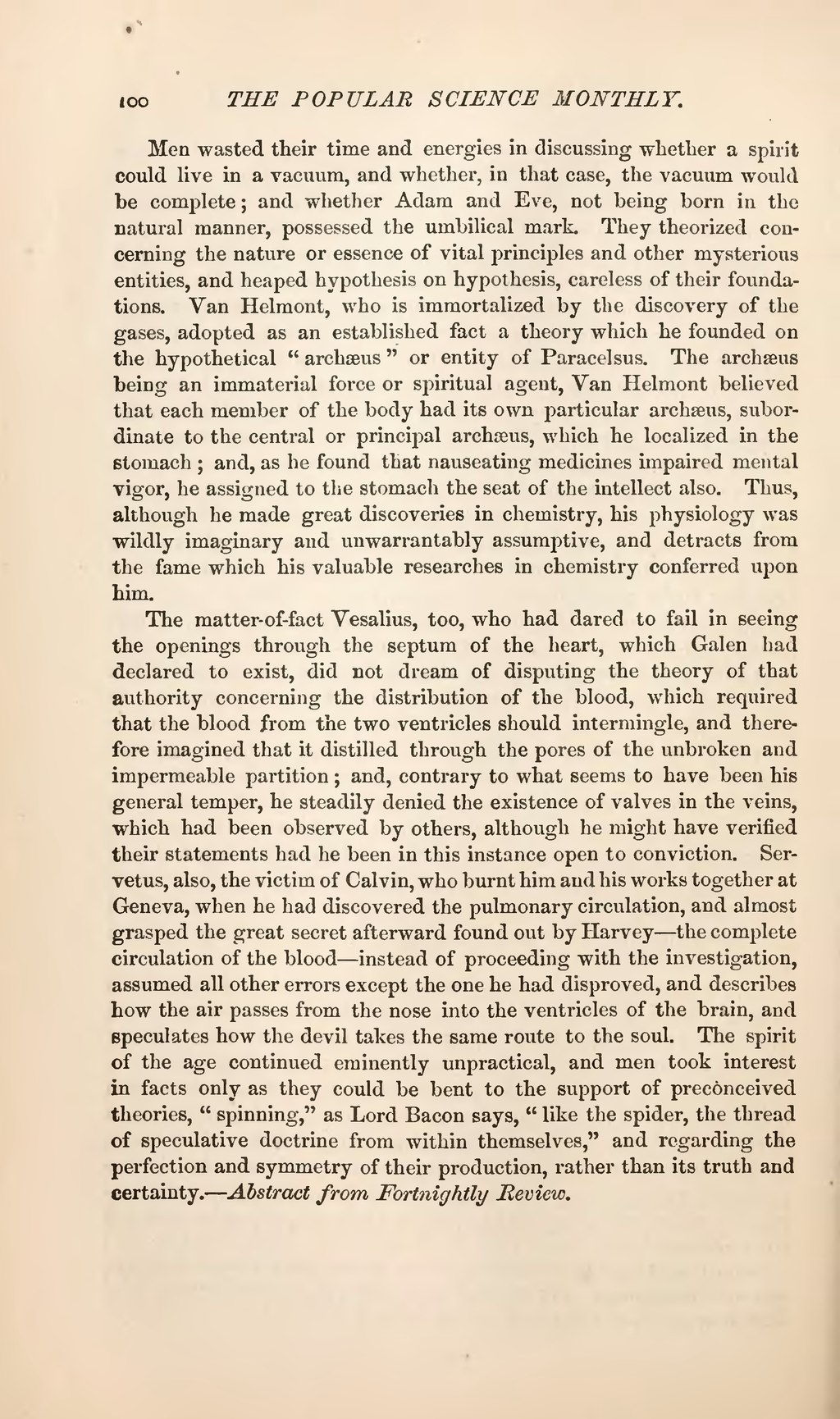Men wasted their time and energies in discussing whether a spirit could live in a vacuum, and whether, in that case, the vacuum would be complete; and whether Adam and Eve, not being born in the natural manner, possessed the umbilical mark. They theorized concerning the nature or essence of vital principles and other mysterious entities, and heaped hypothesis on hypothesis, careless of their foundations. Van Helmont, who is immortalized by the discovery of the gases, adopted as an established fact a theory which he founded on the hypothetical "archæus" or entity of Paracelsus. The archæus being an immaterial force or spiritual agent, Van Helmont believed that each member of the body had its own particular archæus, subordinate to the central or principal archæus, which he localized in the stomach; and, as he found that nauseating medicines impaired mental vigor, he assigned to the stomach the seat of the intellect also. Thus, although he made great discoveries in chemistry, his physiology was wildly imaginary and unwarrantably assumptive, and detracts from the fame which his valuable researches in chemistry conferred upon him.
The matter of fact Vesalius, too, who had dared to fail in seeing the openings through the septum of the heart, which Galen had declared to exist, did not dream of disputing the theory of that authority concerning the distribution of the blood, which required that the blood from the two ventricles should intermingle, and therefore imagined that it distilled through the pores of the unbroken and impermeable partition; and, contrary to what seems to have been his general temper, he steadily denied the existence of valves in the veins, which had been observed by others, although he might have verified their statements had he been in this instance open to conviction. Servetus, also, the victim of Calvin, who burnt him and his works together at Geneva, when he had discovered the pulmonary circulation, and almost grasped the great secret afterward found out by Harvey—the complete circulation of the blood—instead of proceeding with the investigation, assumed all other errors except the one he had disproved, and describes how the air passes from the nose into the ventricles of the brain, and speculates how the devil takes the same route to the soul. The spirit of the age continued eminently unpractical, and men took interest in facts only as they could be bent to the support of preconceived theories, "spinning," as Lord Bacon says, "like the spider, the thread of speculative doctrine from within themselves," and regarding the perfection and symmetry of their production, rather than its truth and certainty.—Abstract from Fortnightly Review.
